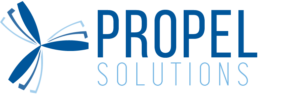The Challenge
Fisheries and Oceans Canada (DFO) is committed to a regulatory approach that ensures the aquaculture industry operates in a sustainable manner, that minimizes the impacts of aquaculture on wild stocks while streamlining and simplifying the regulatory requirements that the industry must meet. DFO aims to increase accountability through the BC Aquaculture Regulatory Program (BCARP), which makes data on the environmental and operational performance of the aquaculture industry available to the public. Propel was engaged by DFO to conduct a comprehensive review of its public reporting process to ensure data is being collected, managed and reported consistently and correctly.
The Objectives
- Review and Documentation of End to End Reporting Process: Propel conducted a series of interviews with key stakeholders involved in data collection, creating reports, web posting and web maintenance. Opportunities were identified to improve the process through interviews, conducting research, and reviewing documentation. The results from the analysis provided the steps in the process, departments and inter dependencies, decision points and systems required for the end to end data management process.
- Develop Process Improvement Recommendations: Propel identified opportunities to improve timeliness, efficiency and accuracy of reports through process improvement. Propel provided recommendations to streamline processes to ensure that they are salable, customer responsive and quality oriented.
- Create Findings Report with Roles and Responsibilities: Propel provided a comprehensive report evaluating and describing best practices for the BCARP Public Reporting process. Roles and Responsibilities were documented for staff in AMD BC, AMD NHQ, and Communications, along with proposed future state procedures to ensure consistency with using the processes across areas.
The Results
The Business Process Analysis provided the DFO with clarity on the roles and responsibilities of each of the departments involved in the Public Reporting Process. A tool was developed to track the status of each report as it moved through the process of data collection, report creation, approvals and web positing. Furthermore, a report audit tracking tool was developed so the department could keep track up updates to reports. This procedures document provided staff in the DFO with visibility into the process from start to end.

